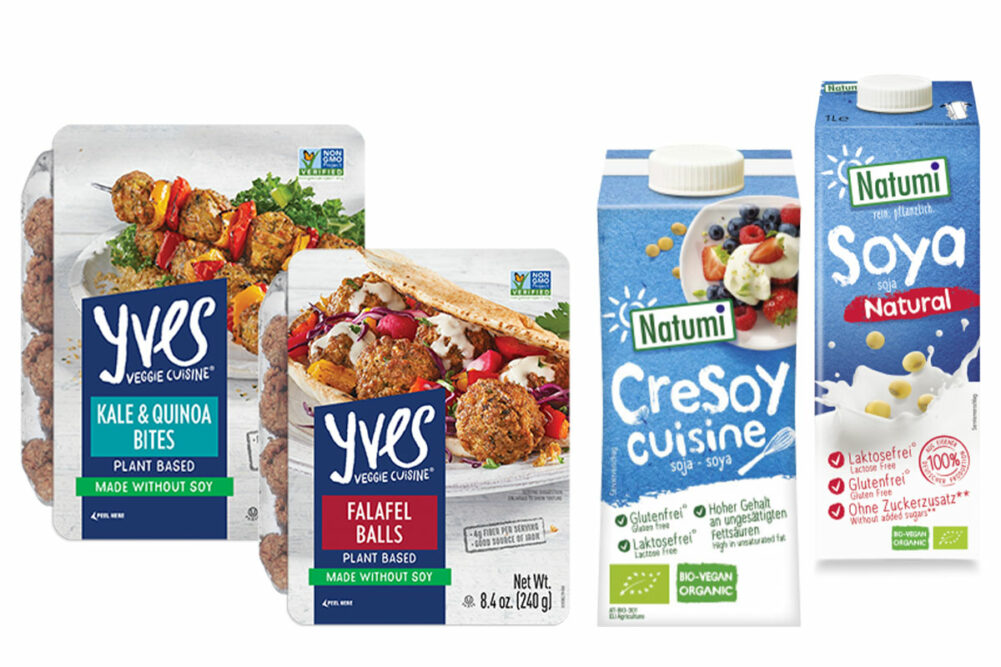LAKE SUCCESS, NY. — Inflation, ingredient shortages, supply chain disruptions and a deceleration in key plant-based categories have prevented the Hain Celestial Group from fully transitioning to the Hain 3.0 strategy that was introduced in September 2021. Key elements of the plan involved divesting its personal care business and focusing on such growth categories as snacks, dairy alternatives and meat alternatives.
A little less than a year later, the personal care business remains, the meat alternative category has decelerated and inflationary pressures in Europe have crimped the outlook for Hain Celestial’s dairy alternatives business, much of which is private label.
“We definitely are going to continue to reshape our portfolio as we mentioned on investor day last year,” said Mark L. Schiller, president and chief executive officer, during an Aug. 25 conference call to discuss fiscal 2022 results. “And there are active discussions on a number of things within our portfolio. It's a little difficult for buyers to get financing right now, but there's interest in certainly some of the tail brands that we wanted to sell.
“With regard to plant-based, look, it's been a very volatile two years with COVID and now recession, and, so, what we're doing is a lot of analytics around, are these changes permanent or are these changes temporary?”
During the third quarter of fiscal 2022, Hain Celestial said it had lost a plant-based dairy co-manufacturing contract. During the fourth quarter, European net sales declined 25%, driven by the lost contract and overall softness in the non-dairy beverage category.
“The category had been growing mid-high single digits for the first three quarters of the year and dropped fairly considerably in the fourth quarter,” Mr. Schiller said. “So, we think some of that is a function of recession. We don't think that's a long-term change in the trajectory of the category.”
Regarding meat alternatives, Mr. Schiller added, “plant-based protein has been soft for a while, and that's something that we're assessing in terms of its importance in our portfolio and whether that remains a turbocharged brand for us.”
During fiscal 2022, ended June 30, Hain Celestial earned $77.9 million, equal to 84¢ per share on the common stock, up slightly from fiscal 2021 when the company earned $77.4 million, or 77¢ per share.
Full-year sales were $1.89 billion, down from $1.97 billion the year before.
During the fourth quarter, Hain’s net income was $3 million, or 3¢ per share, down sharply from the year prior when the company earned $40.5 million, or 41¢ per share.
Quarterly sales were $457 million, up slightly from $451 million during the same period of the previous year.
Hain Celestial North America business unit sales rose 5% to $1.16 billion during the year. Segment adjusted operating income fell 28% to $103 million. Inflation, supply chain disruptions and a write-down of $10 million to eliminate several unprofitable brands and stock-keeping units were cited as reasons for the decline.
International business unit sales fell 16% to $729 million. Adjusted segment operating income was $81.7 million, down 21% from the year before. The decrease was due to lower gross profit resulting from a decline in sales, as well as higher energy and supply chain costs, when compared to the prior year.
Looking ahead to fiscal 2023, Mr. Schiller expressed optimism about Hain Celestial’s prospects.
“While the environment is clearly volatile and unprecedented, we believe we are well positioned for a successful year,” he said. “Here are a few of the reasons why. First, we have strong top-line momentum and brand strength in North America, which we expect will continue. Second, our innovation is performing well, helping us further expand our distribution and share of shelf.
“Third, we've successfully taken significant pricing in Q1 in the United States and the UK, which should allow our pricing to catch up to inflation as the year progresses. Fourth, we're making solid progress in signing new contracts to replace the lost nondairy beverage volume in Europe. And lastly, our productivity pipeline is full.”




